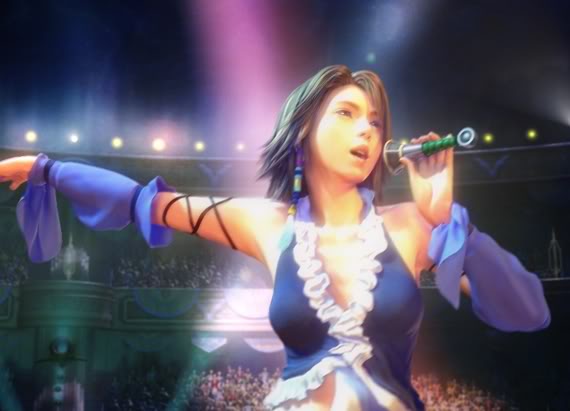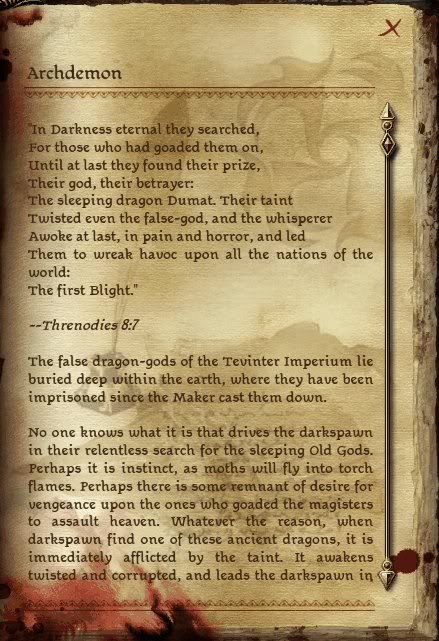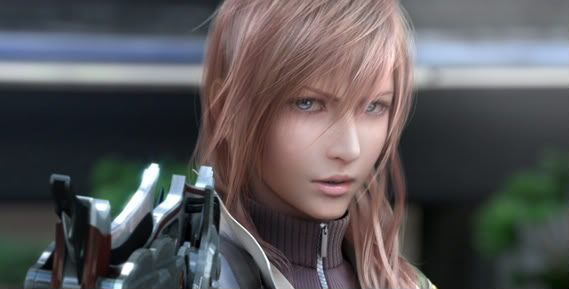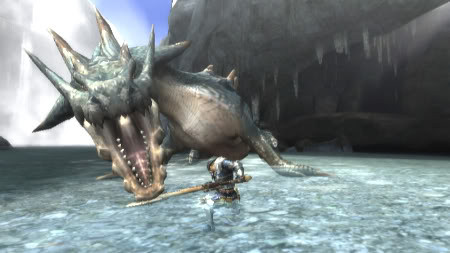This post has not been edited by the GamesBeat staff. Opinions by GamesBeat community writers do not necessarily reflect those of the staff.

Final Fantasy 13 debuted to a number of mixed reviews. Gamers continue to discuss — sometimes quite heatedly — whether the changes in FF13 are too much, especially for longtime fans of the series.
Much of the debate centers around one important question: Is Final Fantasy 13 really a Final Fantasy game?
Brian Shirk, the Bitmob community’s resident Japanese RPG expert, joins Bitmob Managing Editor (and RPG nerd) Jason Wilson in a discussion about this heated topic. This is by no means an exhaustive review of the game (you may find Brian’s spoilerless review here); this is two devoted fans of the RPG genre discussing their thoughts on the latest game of one of their beloved franchises.
(Editor’s note: While we dance around many plot points, a certain type of reader throws fits if any discussion of a recently released game doesn’t carry a “Spoiler Warning.” Consider yourself warned.)
Jason: Is Final Fantasy 13 really a Final Fantasy game?
Brian: Final Fantasy 13 changes the battle system in a radical way, but it still retains the series' traditional feel by including familiar spells, weapons, and summons. Likewise, the story is a bit of a departure, as it’s more character-focused, but its plot is similar to past Final Fantasy fare.
Do you feel that it's as radical of a departure from other Final Fantasy games as Final Fantasy 12?
Jason: In some ways, yes. For me, what makes a Final Fantasy game isn't mechanics, familiar monsters, or weapons. It's the story. Final Fantasy games are about epic quests and fantastical worlds, places that just don't exist in other fantasy games. A world in Final Fantasy feels so different, so fantastical; they’re breathtakingly imaginative. The developers really take advantage of that; they aren't constrained by any "genre dogma" when it comes to designing their worlds. The world of Final Fantasy 13 feels like something I've never visited before, and that's what the essence of a Final Fantasy game should be about.
As far as FF13 being a radical departure from the established formula as FF12, I think FF13 is among the most distinct Final Fantasys, from character development to combat. The combat is especially a departure from previous games. The Crystarium, Paradigm, and Stagger systems fundamentally alter combat in Final Fantasy.
 Brian: Since each Final Fantasy game has a distinct feel, what do you think of the notion made by certain journalists that the opening of Final Fantasy 13 is an imitation of the terrorist attack on Midgar in Final Fantasy 7?
Brian: Since each Final Fantasy game has a distinct feel, what do you think of the notion made by certain journalists that the opening of Final Fantasy 13 is an imitation of the terrorist attack on Midgar in Final Fantasy 7?
Jason: One could find similarities — especially since both FF7 and FF13 each sport futuristic settings — but I think the motivations of the characters are so different that it isn't an imitation. Lightning, Snow, and Sazh each have their own reasons for being there.
Do you feel it's an imitation?
Brian: That's similar to how I feel. Final Fantasy 13 certainly has a futuristic setting, but the characters' motives and the situations in each game are completely different. One is a planned terrorist attack while the other is a purge initiated by the governing society.
Jason: One of my favorite aspects of FF13 is how the characters each have their own motivations, more so than most Final Fantasys — and I’d argue more so than any Final Fantasy. The development of the characters is intriguing and fascinating.
Brian: I got a similar vibe. Final Fantasy 10's and 12's characters had a backstory that let us know a bit about who they are, but they didn't go through as much change as the characters in Final Fantasy 13. In my opinion, the most exciting aspect of the game's story is watching how the characters react to certain events and how their emotions and thoughts change as the game progresses.
What characters do you find the most interesting so far?
Jason: This maybe because I'm a new father, but I'm enjoying Sazh the most at this point. And this surprises me, because early on, I felt Sazh was just a borderline racist parody of a black buffoon character. But as the plot deepens, you learn more about more about his motivations, and you see that this man's heart is torn. That's how I'm reading it. I was ready to even address the negative stereotype I felt Sazh embodied, but the game's writers surprised the hell out of me by making him a very interesting character who steps out of the role I perceived at the beginning of the game. I know Japanese development houses have had issues with black characters in the past, but I think Square has avoided those issues with FF13.
Of course, I'm a white honky and could be misreading this. But that's how I see it.
 Brian: And here I thought I'd be the only one who liked Sazh. Before playing FF13, I thought that Sazh was a goofy stereotype, but Square Enix really surprised me despite their choice for his theme song. Sazh may make sarcastic remarks at times, but he's actually the most rational character of the bunch. He doesn't just charge into things without thinking, unlike Snow, and he makes enough jokes to entertain me.
Brian: And here I thought I'd be the only one who liked Sazh. Before playing FF13, I thought that Sazh was a goofy stereotype, but Square Enix really surprised me despite their choice for his theme song. Sazh may make sarcastic remarks at times, but he's actually the most rational character of the bunch. He doesn't just charge into things without thinking, unlike Snow, and he makes enough jokes to entertain me.
Despite Snow being too idealistic at times, I also feel that his personality and look is a refreshing change after having played as poorly developed effeminate characters like Vaan in Final Fantasy 12. Snow jumps into things without thinking, but I could see him as a hero from the very beginning despite his faults.
Jason: You don't think Snow is a parody of Han Solo? At least, at times?
Brian: Now that you mention it, he is similar to Han Solo. He's charming, seems to rely on luck, and is definitely a ladies' man. Snow is also somewhat of a hotshot, but he somehow manages to be a bit more likeable than everyone's favorite Star Wars smuggler.
Speaking of characters, are you satisfied with Final Fantasy 13's voice acting?
Jason: As for the voice acting, I haven't paid too much attention to it. I play these games with the subtitles on, as I've found voice acting — and voice editing — to be inconsistent in so many games. The only voice that really annoys me is Vanille, because her accent seems inconsistent to me. Is it British? Is it Aussie? Is it New Zealander? I can't peg it, and it's driving me — and my wife — crazy.
Brian: I had trouble identifying her accent as well. Fang's is clear, but Vanille — she sounds like a porn star, at least according to the GameFAQs forums. Her extremely high-pitched tone seems a bit unrealistic, but that's common with voice acting for females in JRPGs.
Jason: It's also common for the "cutesy young girl" role of FF games. I wish Square would dump that.
Brian: Me too. It's fine including that type of girl now and then, but it's unnecessary to include one with each installment. Or at least they should throw us off by bringing them into a rage when we least expect it. I think that'd be much more satisfying than witnessing Yuna's transformation from a highly religious girl into a pistol-packin', booty-short-sporting woman.
Jason: I was trying to forget about Final Fantasy 10-2, Brian. Thanks for bringing that up.
 Brian: My apologies. But now that we're talking about that much-maligned Final Fantasy spinoff, do you see any connections between its fast-paced "Dress Sphere" battle system and Final Fantasy 13's breezy battles?
Brian: My apologies. But now that we're talking about that much-maligned Final Fantasy spinoff, do you see any connections between its fast-paced "Dress Sphere" battle system and Final Fantasy 13's breezy battles?
Jason: As I've spent the better part of the past 6-plus years trying to forget that game, my memory may be foggy. I think it could serve as one of the inspirations for the Paradigm system — changing "dresses" akin to changing Paradigms? I'm very curious of the "Dress Sphere" system indeed laid the groundwork for FF13's combat system.
Brian: I feel your pain. My roommate of six years ago let me have it when he saw me playing Final Fantasy 10-2, and after spending some time with it, I can't blame him. I think the Paradigm system may have been inspired by its battle system as well, but I also think Square Enix drew from games such as Chrono Cross, Panzer Dragoon Saga, and even the Tales series. I found the non-Final Fantasy influence quite surprising, as SE usually doesn't borrow concepts from other JRPGs.
Jason: In what ways do you think FF13 draws inspiration from Chrono Cross and Tales?
Brian: It draws from Chrono Cross, and Xenogears, in that you can execute more than one move per turn and each is assigned points. It also borrows from that title in that you can escape from any battle, including bosses, by retrying. To be more accurate, though, that concept originally came from Mystic Quest, and I think SE chose to allow players to retry any battle to make it more accessible to new players.
Also, I felt that Final Fantasy 13 drew from Tales in that battles are chaotic with characters moving quickly and several numbers appearing onscreen simultaneously; you can only control one character, and the others are assigned A.I. roles; and you're assigned a grade after battles. And like Panzer Dragoon, a higher star rating can net you better items.
Do you feel that Final Fantasy 13 was influenced by any non-Japanese titles?
 Jason: I do see nods to Western RPG development. The Datalog reminds me a great deal of the books you'd find in the Baldur's Gate and Icewind Dale series that revealed more of the game's world and legends to you, not to mention the codices of Mass Effect and Dragon Age. Combat with your companions also reminds me of BioWare games, where the A.I. can handle the combat of your fellows without you directing it.
Jason: I do see nods to Western RPG development. The Datalog reminds me a great deal of the books you'd find in the Baldur's Gate and Icewind Dale series that revealed more of the game's world and legends to you, not to mention the codices of Mass Effect and Dragon Age. Combat with your companions also reminds me of BioWare games, where the A.I. can handle the combat of your fellows without you directing it.
But at its heart, I think FF13 is influenced more by the designers' desire to try new things than specific games.
Brian: That's really interesting, because I also felt that the Datalog was inspired by Western RPGs. I was going to give credit to Mass Effect, but apparently Western RPGs have been doing that for years. The Tales series has also had a Datalog of sorts ever since Tales of Symphonia, but it's more of a story synopsis.
Jason: The Datalog is one of my favorite aspects of the game. It allows me to refresh my memory on plot points after they happen — not to mention update my wife on things she missed while she was sleeping.
We've danced around the combat angle, so let's hit it now: Do you feel that FF13's battle system is so much of a departure that it's no longer Final Fantasy?
Brian: I've read numerous complaints saying that Final Fantasy 13's combat no longer feels like Final Fantasy, but I disagree. Final Fantasy has always been about change, and really, Square Enix is just continuing that tradition. A certain degree of control may have been taken away by not letting you micromanage characters, but the ability to quickly shift your team's focus on the fly, as if you were calling an audible, makes me feel like coach. It's definitely different from being a player, but I'm enjoying my new role in this battle system. Do you still feel that it's a Final Fantasy game with its newfangled Paradigm System?
Jason: Combat is about change in Final Fantasy, and this is certainly change. It feels like Final Fantasy to me because combat can be as epic as the game world. I sat slack-jawed the first time I launched a Behemoth into the air. Stagger feels like a growth of the traditional elemental weaknesses in Final Fantasy, which are core to the tactics of combat in the series. I start each battle assessing my foes and how I can best get them into Stagger; if that tactical approach isn't Final Fantasy combat, I don't know what is.
Brian: It definitely has a tactical feel to it — I'd say even more so than Final Fantasy 10 and 12. Final Fantasy 10 allowed you to move characters with different strengths and weaknesses in and out of battle quickly, but it relied heavily on elemental weaknesses. Final Fantasy 12's boss fights sometimes required players to use strategy, but it was also very grind-heavy.
I appreciate how Square Enix removed unnecessary grinding during early portions of the game and focused specifically on battle mechanics — especially the Stagger mechanic, like you mentioned.
Jason: I don't feel like it's holding your hand; I feel like it's introducing you to one aspect of the game, letting you master it, and then moving on to the next. That's what good teachers do as they introduce new concepts.
What do you find disappointing thus far?

Brian: I appreciated how it introduced new techniques and classes gradually instead of overwhelming the player immediately, like Final Fantasy 12. For the most part, I was happy with early portions of Final Fantasy 13, but I was bothered by the length of certain dungeons. Sometimes, dungeons were twice as long as they needed to be and it seemed like they were designed purely with the intent to extend the game's length. As for latter portions of Final Fantasy 13 — random spikes in difficulty and the story loses momentum. What have you found disappointing?
Jason: At this point, I wish I had more control of which character I was in control of. I don't mind the party splitting up, but I would rather play Lighting than Hope or Sazh than Vanille in their portions of the earlier parts of the game. I understand the designers' goal — to foster an understanding of the various Paradigms and how they work with the various characters — but I like to be able to choose my characters — especially considering how much I like Sazh.
Brian: Ah, so you're a fan of the Final Fantasy 6 approach. I enjoy being able to pick my own characters as well, but I have to say — I sometimes feel lost once I'm handed the reins. Once I was allowed to pick my own party members in Final Fantasy 13, I wasn't sure what would be the ideal team.
But that fear of making the wrong decision also extends into the weapon-creation system. What do you think of Final Fantasy 13's weapon upgrade/disassembly system?
Jason: I’m enjoying the weapon system and the store system. I like how you can interface all of that through the save points, which seem much more abundant than in previous games. I'm not a big fan of crafting, but I do like how certain items boost the XP value of crafting materials. I don't fear making mistakes; since you craft at a save point, you can always reload your game if you feel you made a boo-boo.
I also don't feel lost when it comes to party composition in RPGs — I think that's because I've been playing RPGs since the days of Wizardry and Ultima, where you made your own parties — not to mention my long history with Dungeons & Dragons and other pen-and-paper RPGs.
 I do wonder if the crafting system is geared toward players of Monster Hunter and MMOs.
I do wonder if the crafting system is geared toward players of Monster Hunter and MMOs.
Brian: Perhaps they gleaned inspiration from that as well as Star Ocean and Odin Sphere. I definitely appreciate Final Fantasy 13's frequent save points, which allow indecisive types like myself to build new weapons without a risk of failure.
Jason: This brings me to the Crystarium — I love the gradual rewards this system gives you. Instead of waiting for each level to improve your character, you can do so almost after every battle. It's a much better reward than earning an Achievement or a Trophy!
Brian: I also appreciate being able to advance characters at my leisure instead of waiting until I reach a certain experience level. The Crystarium system is quite flexible, eventually allowing each character to advance in classes of their choice, while also giving enough guidance through three default classes for each character.
Jason: I just wish that every character had access to every Paradigm from the start so I can better customize my team, but Final Fantasy has been putting its characters into roles for years. Not much I can do about that.
Brian: It's a shame that you're not allowed that flexibility until late in the game. I suppose that decision was made so they could design bosses that required one specific strategy.
Jason: Final verdict: Is FF13 a Final Fantasy game?
Brian: Mixing an innovative Paradigm system with a unique fantasy world that doesn’t rely on an existing setting (*cough* Final Fantasy 12 *cough*), Final Fantasy 13 is well within the spirit of Final Fantasy.
Jason: Final Fantasy 13 evokes what I feel is the essence of a Final Fantasy story: a fantastic world; interesting, engaging characters; and a willingness to embrace change. It's my favorite Final Fantasy in years.
